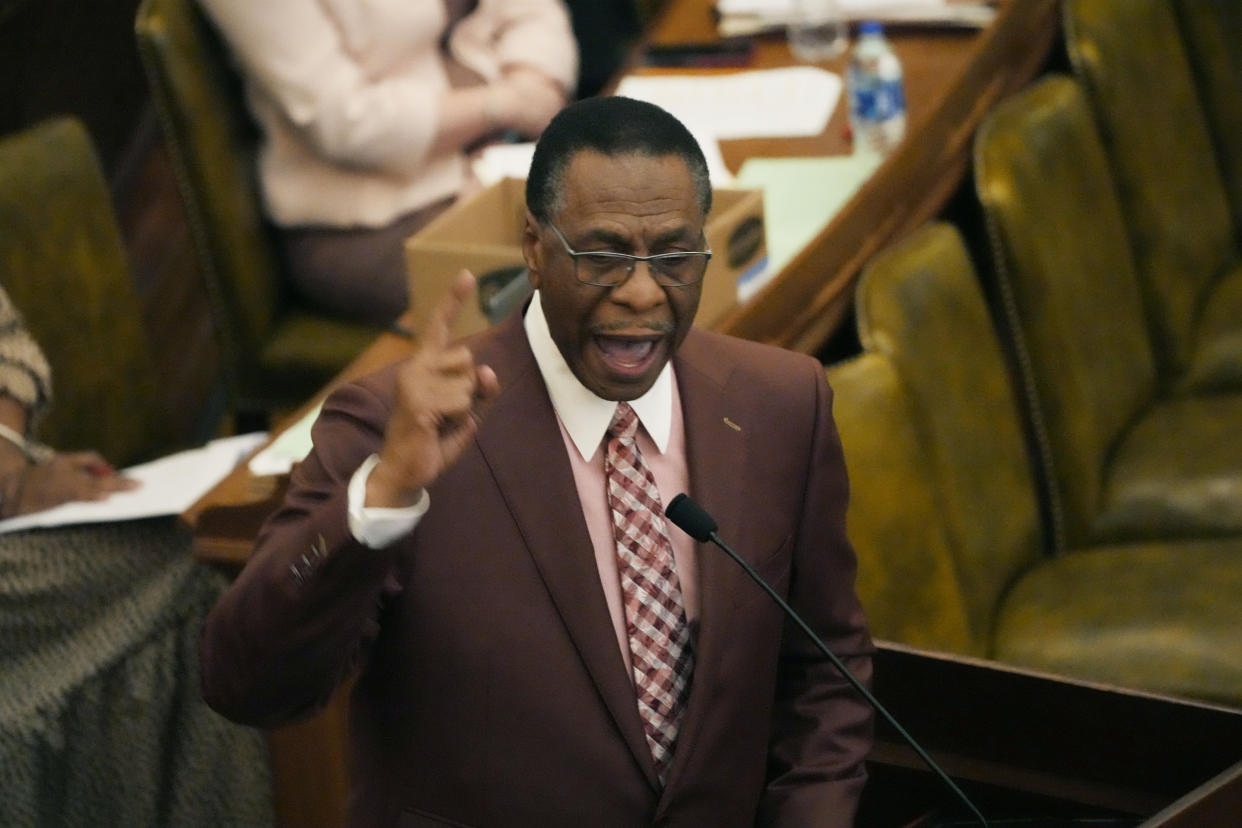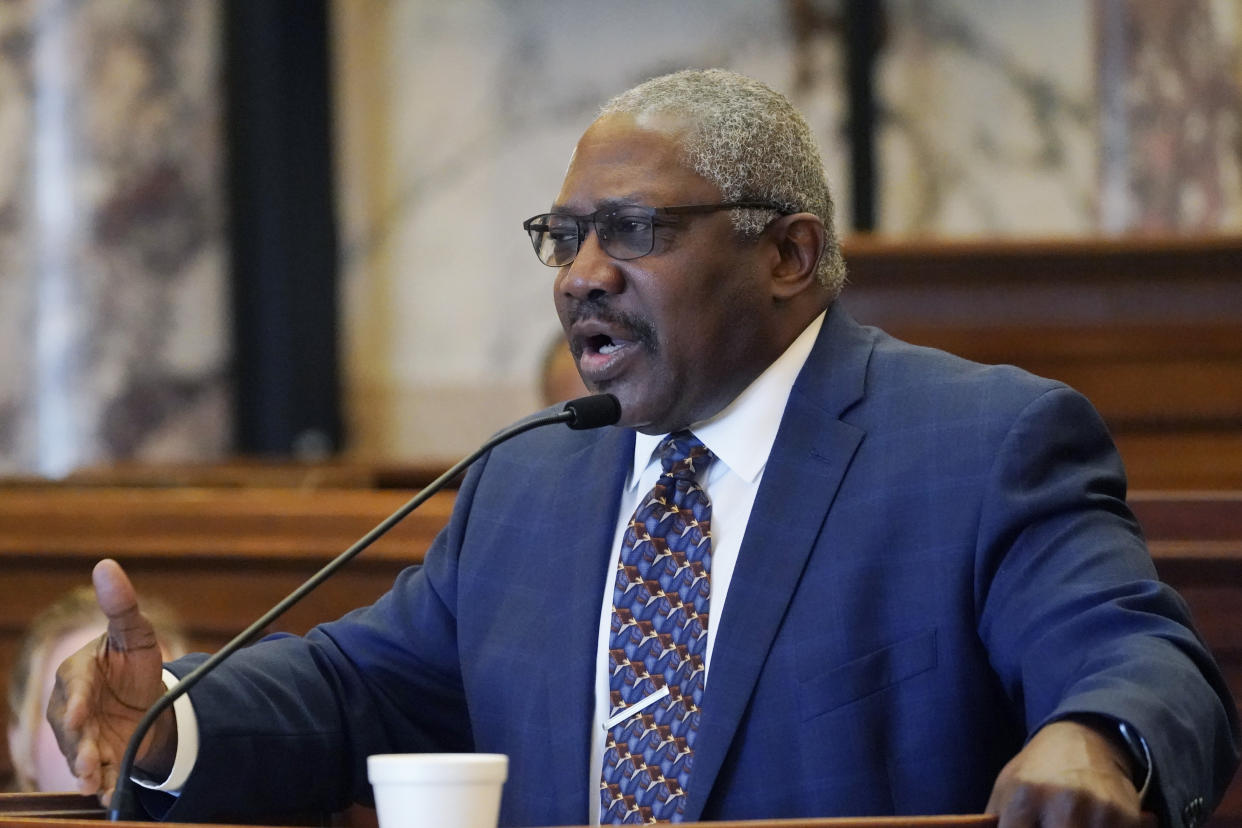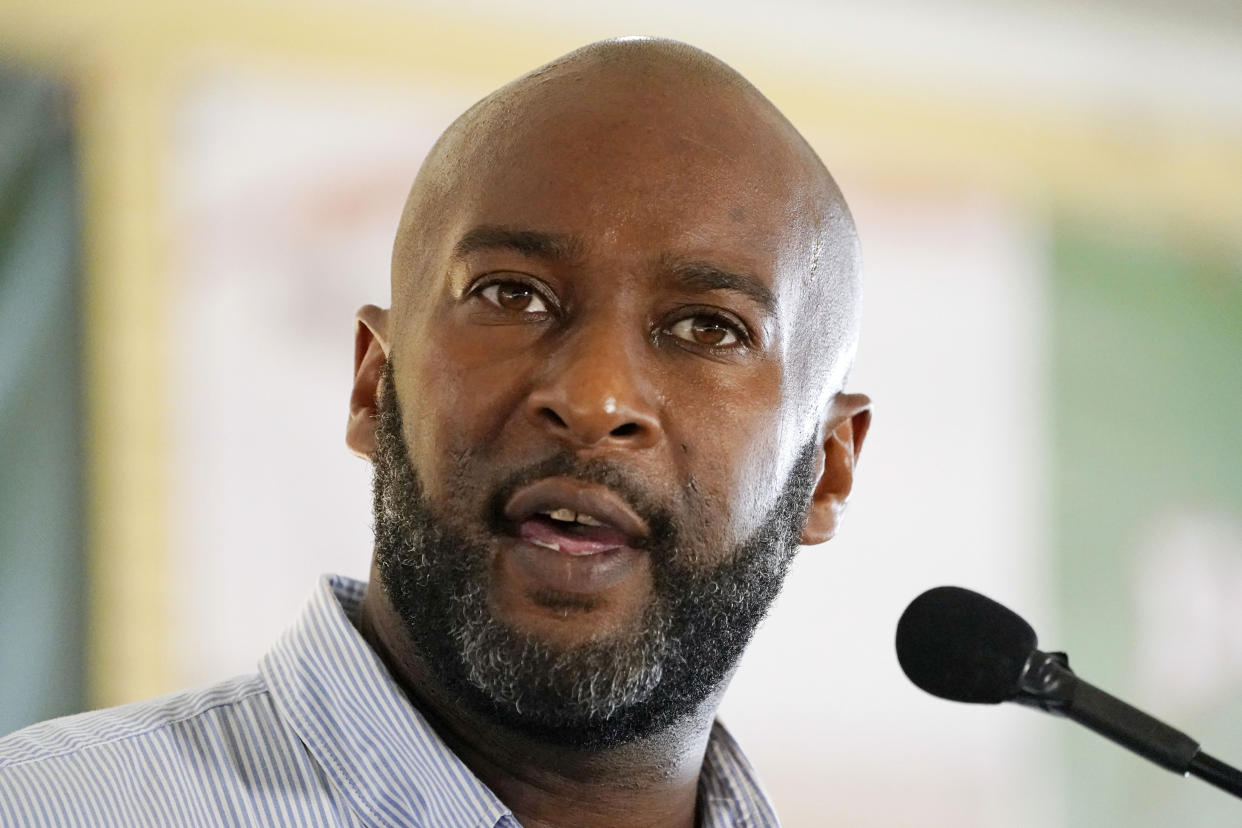'This is the last straw': Jackson advocates plan to fight new Miss. law creating unelected court system

Mississippi Gov. Tate Reeves on Friday signed House Bill 1020, a controversial piece of legislation that will create a court system of unelected judges and prosecutors in the Capitol Complex Improvement District (CCID), a portion of the capital city, Jackson.
The legislation will also expand the jurisdiction of the Capitol Police to the entire city and increase the original boundaries of the CCID. It’s part of a legislative package geared toward improving public safety in the city, the Republican governor said in a news release.
One of the laws increases the fines and penalties for shoplifting in Mississippi; another increases the minimum sentence requirements for the crimes of fleeing or eluding a law enforcement officer and of carjacking and armed carjacking, and “ensures that those minimum imposed terms shall not be reduced or suspended.”
“This legislation won't solve the entire problem, but if we can stop one shooting, if we can respond to one more 911 call — then we're one step closer to a better Jackson,” Reeves said in the news release. “I refuse to accept the status quo. As long as I'm Governor, the state will keep fighting for safer streets for every Mississippian no matter their politics, race, creed, or religion — regardless of how we're portrayed by liberal activists or in the national media."
But advocates across the state and country say this form of law and order will overwhelmingly increase state control of Jackson’s policing and judicial system, ultimately taking power away from the residents of Jackson, a city with one of the highest populations of Black residents in the U.S.

“When you take away the right of people to elect their officials who have traditionally been elected, how else are they going to see it?” Democratic state Rep. Ed Blackmon asked during the final House vote on March 31. “The right to vote may not mean much to some of you. Gentlemen, you have not been beaten for asking for the right to vote. You have not been locked up for asking for that. I have.”
The legislation passed the Mississippi House, 72-41, during the final week of the 2023 session. Independent state Rep. Angela Cockerham was the only Black lawmaker in either the House or Senate who voted for it. Cockerham has not responded to a request for comment from Yahoo News.
The bill was authored and introduced by Republican state Rep. Trey Lamar in February. In an earlier interview with Yahoo News, Lamar said the legislation will address the crime and judicial backlog in the capital.
“The city of Jackson does not just belong to the citizens of Jackson; it is Mississippi’s capital city. And it belongs to the state of Mississippi, to the people of Mississippi,” he told Yahoo News. “The city has failed leadership over the water system, the sewer system, and the crime rate has spiraled out of control.”
Although the Capitol Police’s involvement in recent shootings has left some residents on edge, Lamar says the department’s expanded jurisdiction will provide an extra layer of protection.

“We're just trying to beef up and add to the judicial resources in Jackson,” Lamar said. “And by adding additional law enforcement inside the CCID, we are assisting the Jackson Police Department, because now they have brothers and sisters on the streets with them helping them fight the crime.”
According to Reeves, the CCID was budgeted for 200 officers but there are only 120. He says roughly 450 are needed to combat the surge of crime in the city.
This legislation takes the existing Capitol Police, which previously served primarily as security officers for state buildings, and turned them into a true law enforcement agency that can help fight back against crime in the city within a designated area - the Capitol Complex…
— Governor Tate Reeves (@tatereeves) April 21, 2023
But Rep. Robert Johnson, the Mississippi House minority leader, says the legislation allows a state police force to take control of Mississippi’s Blackest city. “What gives me concern is that those [Capitol] Police officers don't answer to anybody who is a resident of Jackson, who was elected from Jackson, [or the] police chief from Jackson, and that's not a way of community policing,” Johnson said.
Johnson says the most “egregious” part of the bill is the additional city court system aimed at addressing the need for more judges. The bill gives the Mississippi Supreme Court the power to appoint new judges, who will have priority in the CCID.
“This municipal court will prosecute people for misdemeanors. But upon conviction of a misdemeanor, this court can, if they want to, have you locked up in a prison,” Johnson said. “That is just unconscionable … and it clearly shows a picture of how they feel about the people in the city of Jackson.”

The legislation has been amended at least four times since January. “House Bill 1020 was filed with the best of intentions,” Reeves said at a press conference this week. “But as is often the case of a bill, particularly one that is as closely monitored as that one, as it goes through the process … the bills tend to improve. House Bill 1020 certainly fits that. It improved through the process.”
But Democratic state Sen. John Horhn, a member of the Legislative Black Caucus, says the changes in the bill aren’t enough. “It is still a snake,” Horhn told Jackson news outlet WLBT last month.
Advocates, organizers and community leaders are decrying the legislation nationwide, and the American Civil Liberties Union of Mississippi says the racial makeup of the city can’t be ignored.
“This bill represents part of a continued effort by the state of Mississippi to dilute the voting power of people in Jackson and to also silence their voices and limit their ability to have an impact on the decisions that impact them every day, such as which police officers are in your neighborhood, who's going to come when you call 911,” Claudia Hyman, senior staff attorney for the ACLU of Mississippi, told Yahoo News.
Vangela Wade, the president of the Mississippi Center for Justice, described the legislation as “redlining on steroids” when it passed the House earlier this year.

“If you had a copy of the map that would show the Capitol Complex Improvement District, you would see that it includes the majority of the areas where white residents reside,” Wade told Yahoo News in February.
However, supporters of the legislation say Jackson is suffering from a mountain of issues, including a high crime rate and an ongoing water crisis. Most recently, residents have been left without trash pickup.
But opponents of the legislation say the bill is not a solution to the city’s problems. “We believe that public safety is about much more than crime statistics. We believe that it involves health care [and] how the community responds to emergency situations in general,” Hyman said.
Damareo Cooper, the co-executive director for the Center for Popular Democracy, an organizing group, says the issues in Jackson boil down to a decade-long crisis of a lack of funding and resources.
“There's been a lack of investment in Jackson, and everyone knows about it. I don’t know why they're trying to act like it isn't well documented that the mayor and previous mayors have been asking for infrastructure dollars and not getting them from the state, the state Legislature and state executive office,” he said.
Shuwaski Young, the Democratic candidate for Mississippi secretary of state and a graduate of Jackson State University, says the legislation is un-American and undemocratic.

“Unfortunately, everyone doesn't play fair. Everyone doesn't adhere to the fact that we are all Mississippians and we are all Americans first,” Young told Yahoo News.
Following Reeves's signing of the bill, several organizations and leaders are working to undo the law at the state and federal levels.
“People seem to be offended by Black people running their own city,” Johnson said. “I think this is the last straw. This is going to make everybody mount up and organize and do what we have to do to take the city back and to take this state back.”
The NAACP and the Legislative Black Caucus are planning to file lawsuits, and the ACLU of Mississippi says it also plans to take action.
“They are only imposing this on the city of Jackson. No other jurisdiction in the state of Mississippi will have this type of oversight in taking local authority,” NAACP president and CEO Derrick Johnson said at an April 6 town hall. “That is a direct violation of the Equal Protection [Clause]. As soon as the governor signs any or all of these bills, we will be filing a lawsuit the same day.”
The bill will go into effect July 1, barring any lawsuits.
